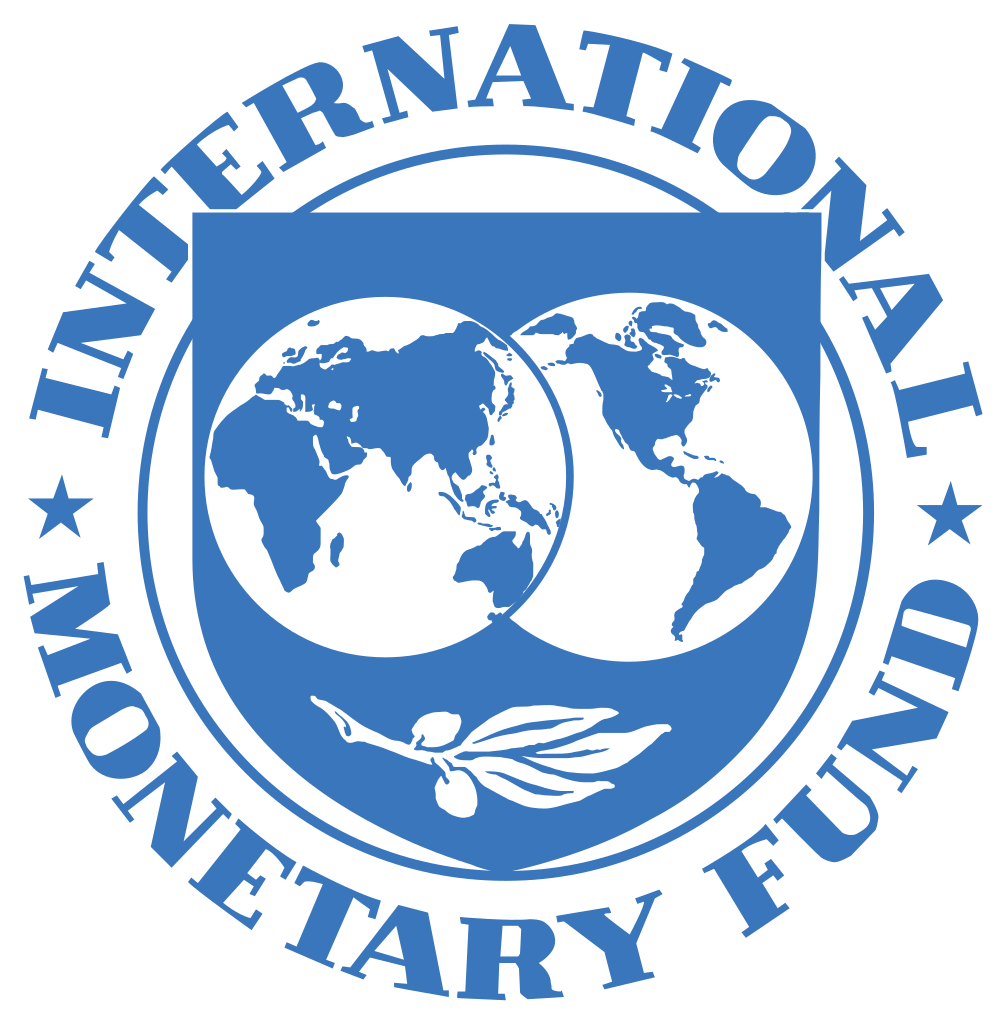International Monetary Fund: Difference between revisions
(COVID-19 pandemic) Tag: Visual edit |
Verda.Majo (talk | contribs) (added Davison Budhoo IMF resignation letter quotes) Tag: Visual edit |
||
| Line 2: | Line 2: | ||
The '''International Monetary Fund''' ('''IMF''') is a [[Neoliberalism|neoliberal]] financial organization. Although it is a global organization, 38% of it is controlled by [[French Republic|France]], [[Federal Republic of Germany|Germany]], [[Japan]], the [[United Kingdom of Great Britain and Northern Ireland|United Kingdom]], and [[United States of America|United States]].<ref name=":0">{{News citation|author=Arman Tendulkar|newspaper=International Policy Digest|title=The International Monetary Fund: A Vehicle for Modern Day Imperialism|date=2021-10-11|url=https://intpolicydigest.org/the-platform/the-international-monetary-fund-a-vehicle-for-modern-day-imperialism/|retrieved=2022-06-19}}</ref> | The '''International Monetary Fund''' ('''IMF''') is a [[Neoliberalism|neoliberal]] financial organization. Although it is a global organization, 38% of it is controlled by [[French Republic|France]], [[Federal Republic of Germany|Germany]], [[Japan]], the [[United Kingdom of Great Britain and Northern Ireland|United Kingdom]], and [[United States of America|United States]].<ref name=":0">{{News citation|author=Arman Tendulkar|newspaper=International Policy Digest|title=The International Monetary Fund: A Vehicle for Modern Day Imperialism|date=2021-10-11|url=https://intpolicydigest.org/the-platform/the-international-monetary-fund-a-vehicle-for-modern-day-imperialism/|retrieved=2022-06-19}}</ref> | ||
In his 100-page resignation letter from the IMF, former IMF senior economist [[Davison Budhoo]] described the extensive and systematic statistical fraud used by the IMF to impose its policies on developing countries, and explained that the consequences of these policies led to massive poverty and starvation. In the letter, Budhoo wrote "We manipulated, blatantly and systematically, certain key statistical indices so as to put ourselves in a position where we could make very false pronouncements about economic and financial performance". He added that the IMF's policies are made in "utter disregard to local conditions" and lead countries to "self destruct" and "unleash unstoppable economic and social chaos". He also stated that the routine policy packages of the IMF "can never serve, under any set of circumstances, the cause of financial balance and economic growth" and that "the ill-gotten, inadvertent power that we revel in wielding over prostrate governments and peoples - can only serve to accentuate world tensions".<ref>Budhoo, Davison. [https://tsd.naomiklein.org/files/resources/pdfs/budhoo.pdf "Enough is Enough."] 1988. [https://web.archive.org/web/2/https://tsd.naomiklein.org/files/resources/pdfs/budhoo.pdf Archived] 2022-05-16.</ref> | |||
== By region == | == By region == | ||
Revision as of 04:05, 16 September 2022
International Monetary Fund | |
|---|---|
 Logo | |
| Founded | 27 December 1945 |
| Headquarters | Washington, D.C., United Sttaes |
The International Monetary Fund (IMF) is a neoliberal financial organization. Although it is a global organization, 38% of it is controlled by France, Germany, Japan, the United Kingdom, and United States.[1]
In his 100-page resignation letter from the IMF, former IMF senior economist Davison Budhoo described the extensive and systematic statistical fraud used by the IMF to impose its policies on developing countries, and explained that the consequences of these policies led to massive poverty and starvation. In the letter, Budhoo wrote "We manipulated, blatantly and systematically, certain key statistical indices so as to put ourselves in a position where we could make very false pronouncements about economic and financial performance". He added that the IMF's policies are made in "utter disregard to local conditions" and lead countries to "self destruct" and "unleash unstoppable economic and social chaos". He also stated that the routine policy packages of the IMF "can never serve, under any set of circumstances, the cause of financial balance and economic growth" and that "the ill-gotten, inadvertent power that we revel in wielding over prostrate governments and peoples - can only serve to accentuate world tensions".[2]
By region
Argentina
In 2018, the IMF granted Argentina a $56.3 billion loan, causing austerity and privatization. The loan was given the year before an election to favor right-wing candidate Mauricio Macri, an ally of Donald Trump.[3]
Indonesia
The IMF caused a banking crisis in Indonesia that decreased GDP by 14% and increased poverty by 40%.[1]
Sierra Leone
The IMF made Sierra Leone devalue its currency, which also decreased the cost of its minerals, including diamonds. Increased diamond extraction led to a conflict that killed 70,000 people and displaced 2.6 million.[1]
Ukraine
Ukrainian President Viktor Yanukovych negotiated with the IMF before being overthrown in the 2014 Euromaidan coup. Because the IMF was demanding a decrease in wages and health and education spending, Yanukovych decided not to take the loan and began negotiating with Russia instead.
After the coup, the new government took a $26 billion loan from the IMF after cutting its gas subsidy for citizens by 50%. The IMF has offered Ukraine another loan after the beginning of the 2022 Russo-Ukrainian conflict.[4]
Zambia
The IMF forced Zambia's government to eliminate subsidies for pesticides and fertilizers, decreasing agricultural output and leaving seven million people short of food.[1]
COVID-19 pandemic
From January to October 2020, the IMF gave COVID-19-related loans to 81 countries, including 41 in Africa. The majority of these loans required countries to cut government spending or wages. 14 African countries were required to implement austerity measures in 2021 and 19 more had to by 2023.[5]
References
- ↑ 1.0 1.1 1.2 1.3 Arman Tendulkar (2021-10-11). "The International Monetary Fund: A Vehicle for Modern Day Imperialism" International Policy Digest. Retrieved 2022-06-19.
- ↑ Budhoo, Davison. "Enough is Enough." 1988. Archived 2022-05-16.
- ↑ Fernanda Vallejos (2022-03-10). "Argentina Demands Justice From the IMF" The Intercept. Archived from the original on 2022-06-16. Retrieved 2022-06-19.
- ↑ Prabhat Patnaik (2022-03-06). "The IMF Connection with the Ukraine Crisis" Peoples Democracy. Retrieved 2022-06-19.
- ↑ Dian Maria Blandina (2022-06-29). "IMF Loans Continue to Undermine Health in Africa" Black Agenda Report. Archived from the original on 2022-06-30. Retrieved 2022-07-06.